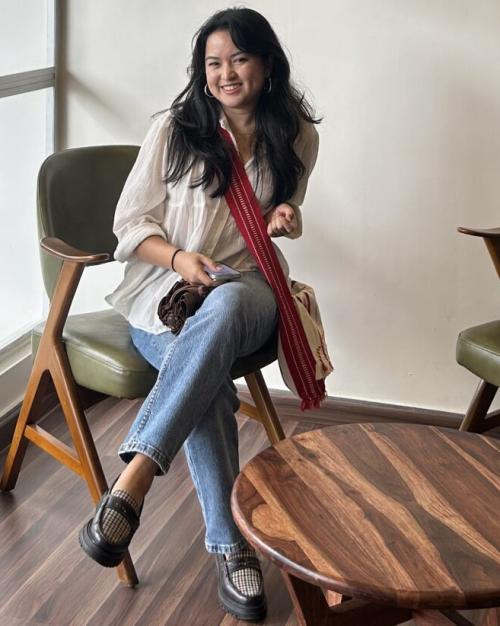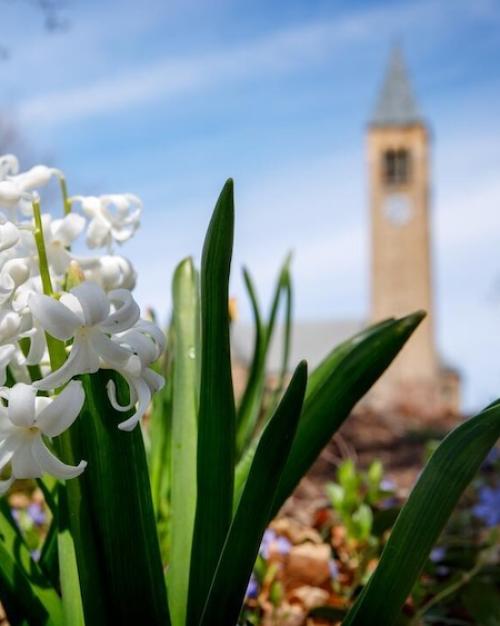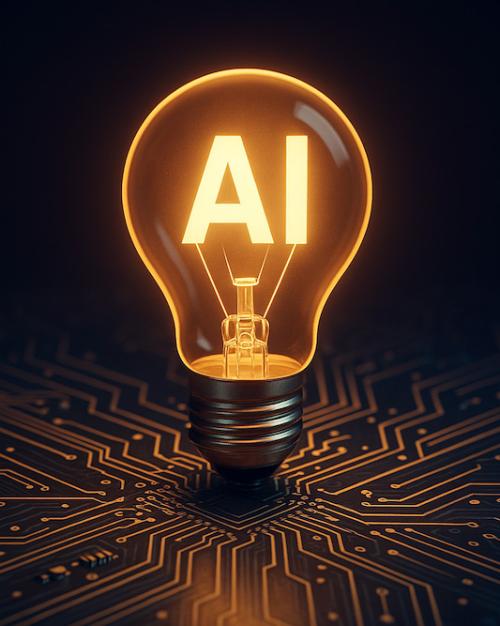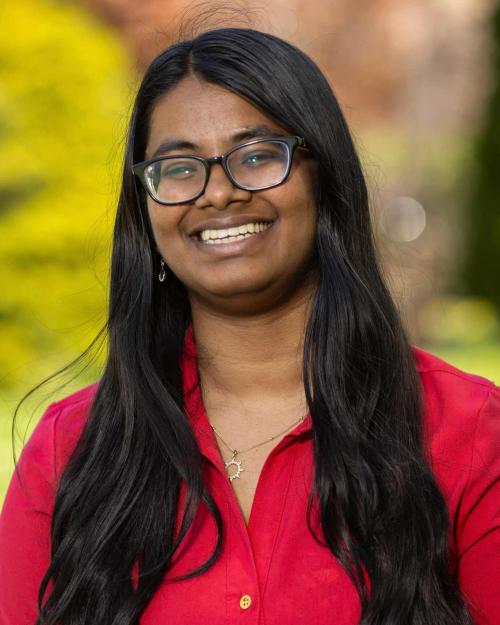Devisree Tallapaneni
Physics & Statistical Science & Robert S. Harrison College Scholar
Yardley, Pa.
What was your favorite class and why?
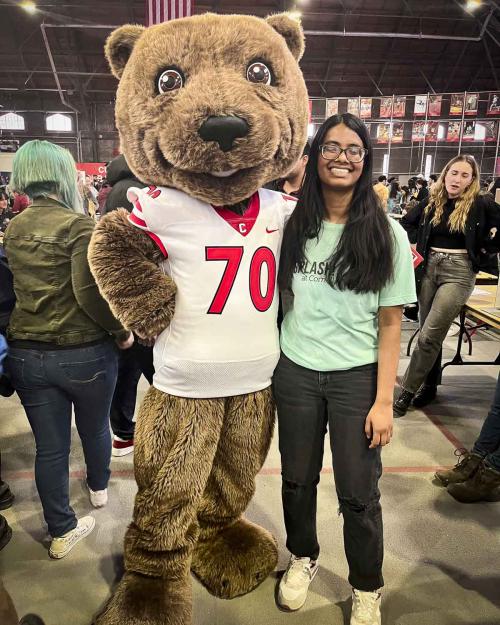
One class I want to highlight is Multiwavelength Astronomical Techniques. I enjoyed the class a lot because it provided me with a unique opportunity to take astronomical observations using the Hartung-Boothroyd Observatory's 24-inch telescope and a 3.8-meter radio telescope on the roof of the Space Sciences Building. It was exciting to have the chance to actually collect the data yourself and it really helped me understand the intricacies of observational astronomy.
What is your main extracurricular activity and why is it important to you?
Since my freshman year, I have been involved in Splash! at Cornell, a student organization that works toward hosting semesterly educational events for middle and high school students. We recruit close to 100 Cornell students each semester to teach about topics they are passionate about and this leads to classes ranging from “SwiftlySpeaking: Unpacking Taylor Swift’s Song Lyrics” to “The Science Behind Vaccines.” These events are really important to me because my experiences at such events during my middle and high school years helped me discover my interests in physics and math. I love the idea that this event could help the next generation of students do the same! I also think it is important that everyone has access to such events and Splash! works hard to reach marginalized students by working closely with local Science and Technology Entry Programs (STEP). There are also incredible opportunities for both leadership and collaboration in the e-board as we plan the event and opportunities to interact with Splash! chapters at other universities. The e-board has a fun culture and we are great friends outside of the club as well. I highly recommend the club to incoming students!
What have you accomplished as a Cornell student that you are most proud of?
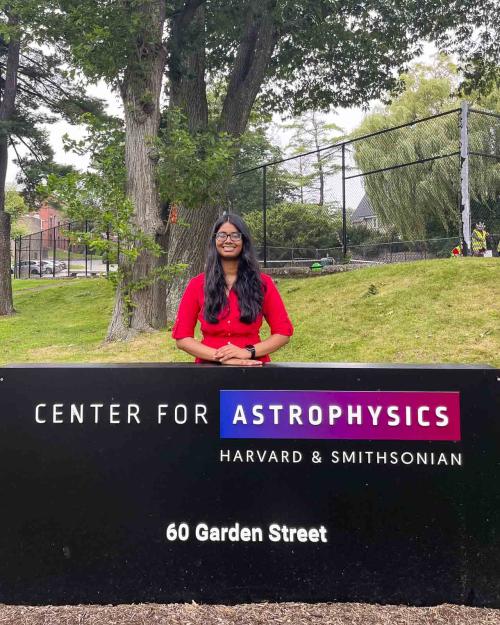
I am proud that I was able to experience research in a variety of astronomy sub-fields and narrow my research interests during my time at Cornell. In my sophomore year, I joined Professor Gordon Stacey’s lab group and worked on research involving spectroscopy, radio astronomy and galaxies. I participated in a Research Experiences for Undergrads (REU) program at the Maria Mitchell Observatory during the following summer and studied interstellar dust. There, I learned that I really enjoyed coding and building statistical models. This led me to intern at the Harvard Center for Astrophysics and work on an astrostatistics project, which I continued as part of my College Scholar thesis. Having these diverse research experiences taught me how to build expertise in new sub-fields from scratch and realize that I would love to pursue research in the area of astrostatistics. I also gained invaluable advice from my mentors at each experience that really helped me understand what life in academia is like and how to navigate it.
How have your beliefs or perspectives changed since you first arrived at Cornell?
During my time at Cornell, I have learned the value of letting your curiosities guide you. While I had some idea of where my interests lie when I first arrived, I let myself be open to trying anything I developed interest in. And while the random assortment of classes I took didn’t make too much sense at first, they were like little puzzle pieces that slowly assembled over time. By the time I reached senior year and looked at the resulting picture, they had fit together to help me realize my true interest in the field of astrostatistics. Now, I am a huge proponent of always exploring your interests since doing so helps you stay happy and motivated. And all the bits of knowledge you acquire in the process somehow end up fitting together in the end anyway.
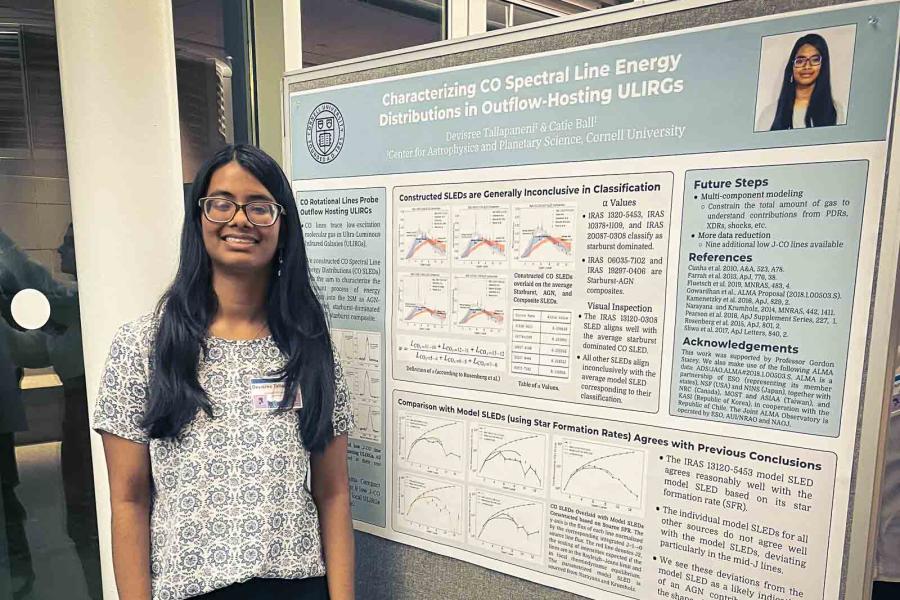
What are your plans for next year?
I will be starting a Ph.D. program in astronomy next year at Ohio State University with a three-year university fellowship and the NSF Graduate Research Fellowship. Building on the knowledge I developed as a College Scholar, I hope to continue working at the intersection of astronomy, statistics and computer science in graduate school.
Every year, our faculty nominate graduating Arts & Sciences students to be featured as part of our Extraordinary Journeys series. Read more about the Class of 2024.
